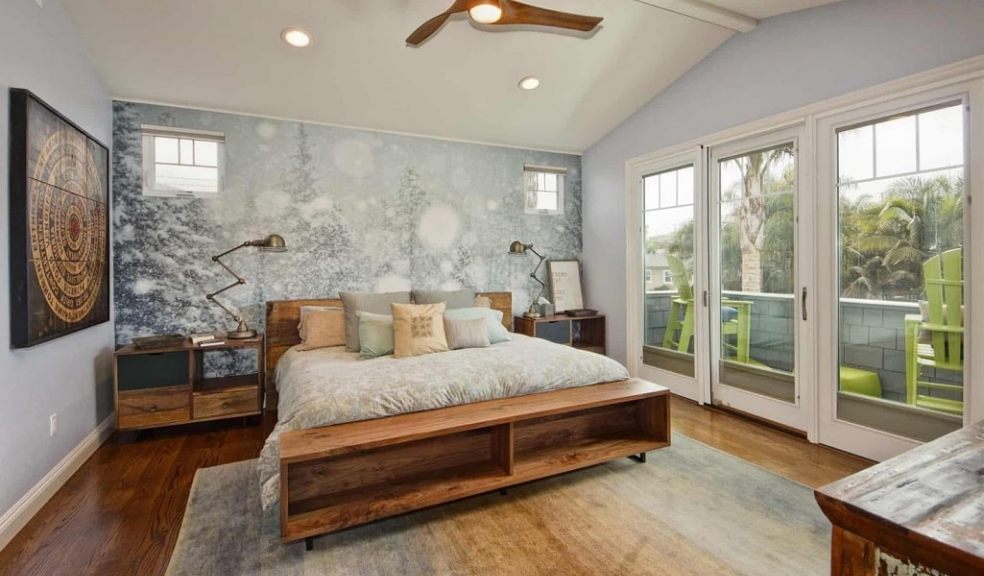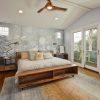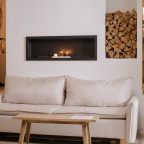
6 Tips for Maximizing Your Sleep Environment
Ideally, your bedroom should be your sanctuary. This is the place where you go at the end of the day to finally put your feet up and let your hair down—literally. But if your bedroom is cluttered, messy, too brightly lit, or contains a desk loaded with paperwork—you might find that your bedroom isn’t the sleep sanctuary that it could be.
So what kind of changes can you make to a bedroom to make space all about sleep and relaxation?
Sleep experts tell us that any bedroom can become a sleep sanctuary with a little thought and care. But first, you might have to make a few changes.
Choosing the Right Mattress and Bedding
The bed is naturally the center point of any bedroom. If your bed isn’t inviting, it won’t invite sleep. If your mattress is more than a decade old, it’s time to replace it. And in fact, because mattress technology has changed for the better in so many ways if you haven’t upgraded recently, you probably aren’t getting the amount of sleep you should be getting.
Today’s mattresses feature such upgrades as memory foam gel that offers the comfort of memory foam while it also stays comfortably cool.
There are also mattresses with beneficial features to prevent pressure points such as high-density foam, pillow tops. You can even find mattresses infused with lavender and green tea for natural sleep enhancement.
It’s also a good idea to look for a mattress that is made to support your preferred sleep position, such as the best mattress for side sleepers.
Bedding is also important. While really good bedding can be hard on the budget, it’s well worth it when you see what the best sheets can do for your sleep. Look for high thread counts and organic plant fibers such as cotton or bamboo, which are naturally moisture-wicking and breathable.
A great down comforter can also seriously enhance the quality of your sleep. Down is naturally breathable and keeps you comfortable in both warm and cold weather.
Don’t forget to take appearance into consideration when choosing to bed. If your bedroom is to be an asleep sanctuary, it should look beautiful, so you feel rewarded for a hard day’s work when you walk into your bedroom.
Say No to the Glow
In order for your room to be an asleep sanctuary, you should keep the screens out of your bedroom. Let your living room be the place where you binge-watch your favorite series, not your bedroom. Studies show that the white and blue light of electronic screens actually inhibits melatonin production and can interfere with the beginning of the normal sleep cycle. If you really must have a television in your bedroom, turn it off at least half an hour before you plan to go to sleep.
Lamps with white light should also be eliminated from your sleep environment or covered with a good lampshade that will allow it to cast a yellow or red glow. According to the Sleep Foundation, the light that resembles a firelight, such as yellow or red, does not interfere in melatonin production. So instead of watching television from your bed or scrolling through social media, trying reading a book with yellow lamplight and candles. Your bed should only be associated with restful reading and sweet sleep.
Desks are a Don’t
If there is anywhere else in the house to put your desk, you should move it. Having a desk in the bedroom is highly detrimental to sleep. Your bedroom should be the place where you get away from all of the concerns of the daytime. It’s hard to go to sleep with a desk full of mail to sort and bills to pay to stare you in the face.
If you absolutely have to have a desk in your bedroom, go with a roll-top desk or a secretary-style desk so you can use it for work in daylight hours, but hide it all away at night time.
Say No to Noise
Reduce the amount of ambient noise in your bedrooms, such as television noise, music, and other household sounds. You can do this with a soothing sound machine, or a white noise from a fan. Studies show that a sound that is steady can lull you into sleep, while a sound with different tones and inflections such as a television or music will reduce sleep quality. If you are someone who really feels like they can’t fall asleep without music, try setting a timer so the music will turn off after an hour. This will help to avoid sudden sound changes in music to rouse you out of your normal sleep cycle.
Go to the Dark Side
Besides eliminating white or blue-toned light from your bedroom, try eliminating as much light as possible when it’s time for bed. Avoid nightlights, bright hallway lights, and glowing screens. Instead, use blackout curtains to block out streetlights, and turn your phone screen downward so it won’t light up at night when you receive notifications. You can even throw a scarf over your digital alarm clock so it doesn’t glow. Keep a nightlight in your bathroom with a yellow or red bulb so that you don’t have to turn on bright lights when you use the bathroom in the middle of the night.
Keep Your Cool
Studies show that the temperature of the human body has to drop several degrees before we can fall asleep. This means that having an overheated bedroom will inhibit your ability to fall asleep. Keep the temperature in your room as cool as you can when it’s time for bed. This will also make you more likely to snuggle down under your covers, which can also help to induce sleep.
As much as you might think a hot bath or shower before bed will help you sleep, studies have shown that if the water temperature is hot enough to raise your core temperature, it can take longer for you to fall asleep. If you bathe or shower before bed, keep the water only comfortably warm. If you really love a hot bath, give yourself an hour to cool down before turning in.
Keeping your bedroom all about sleep will help you to fall asleep faster. If you begin to get great sleep consistently in your bedroom sleep sanctuary, your brain will start to tell you it’s time to shut down and sleep the moment you walk into the room.
Resources— GhostBed, Alaska Sleep Clinic, Sleep Foundation




















